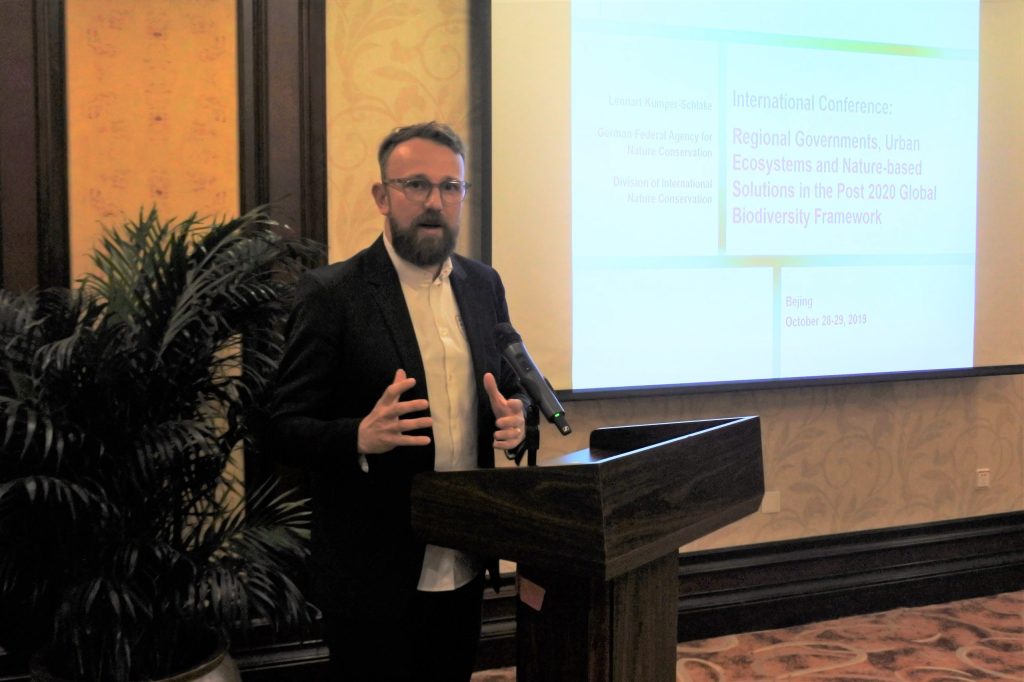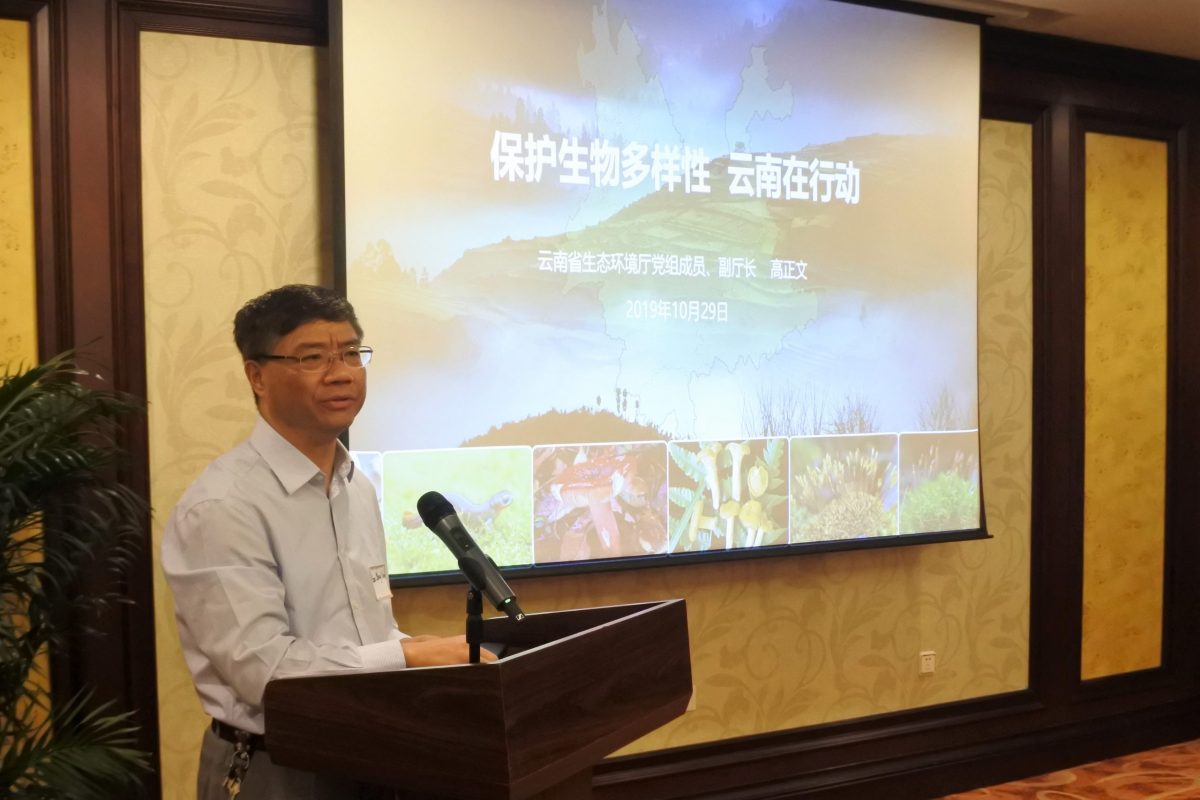Consultation on the role of subnational governments, urban ecosystems and nature-based solutions in the Post 2020 Framework held in Beijing
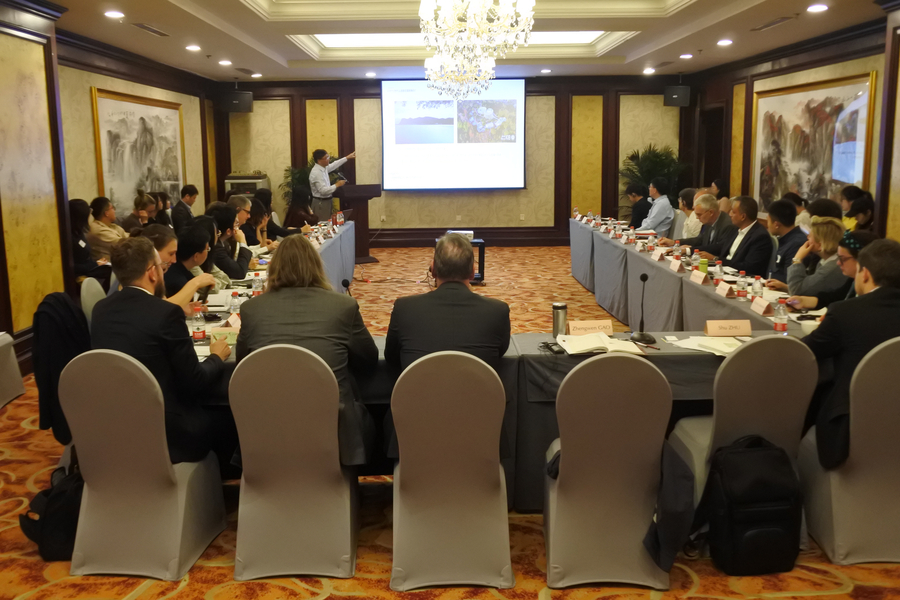
The 15th Conference of Parties to the Convention on Biological Diversity (CBD COP-15) will be hosted by the government of China in Kunming of Yunnan Province in 2020. It will review the achievement and delivery of the CBD’s Strategic Plan for Biodiversity 2011-2020, and it is anticipated that the final decision on the post-2020 global biodiversity framework will be taken. Standing on the front line for urban biodiversity and ecosystem conservation actions, the role of local and subnational governments is instrumental in the preparation and implementation of the post-2020 global framework.
On 29 October, around 60 representatives from national and local governments, policy influencers, urban planners, researchers, and practitioners from eight countries participated in deliberations on mainstreaming urban biodiversity and ecosystems in the Post-2020 Global Biodiversity Framework. The consultation was co-hosted by ICLEI and the Federal Agency for Nature Conservation of the government of Germany (BfN), with support from the CBD Secretariat. On this occasion, participants also visited the campus of Peking University and the Yuanmingyuan Imperial Garden – two examples of maintaining good environmental quality and thriving biodiversity in areas with high levels of human activity.
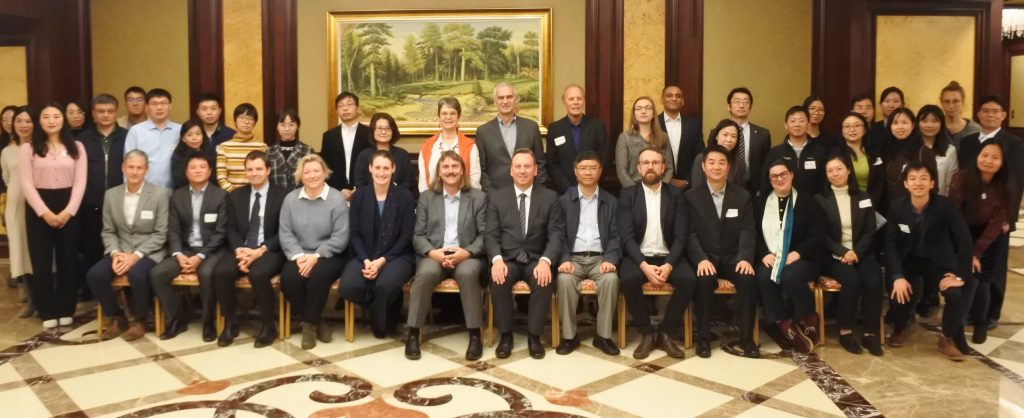
Josef Tumbrinck of the German Federal Ministry for Environment, Nature Conservation and Nuclear Safety (BMU) highlighted in his welcome speech that, discussions on the post-2020 global biodiversity framework rarely mention implementation; yet, subnational governments are playing critical roles in actively exploring solutions to conserve, restore and enhance biodiversity at the local and regional level. Thus, subnational governments are encouraged to raise their voices in the negotiating process of the post-2020 global framework.
Oliver Hillel of the CBD Secretariat highlighted the importance of urban development solutions being integrated, and encouraged subnational governments to make the best use of tools such as the Singapore Index on Cities’ Biodiversity and the CitiesWithNature platform, foster knowledge exchange and cooperation, and actively engage and contribute to the formulation and implementation of the post-2020 global framework.
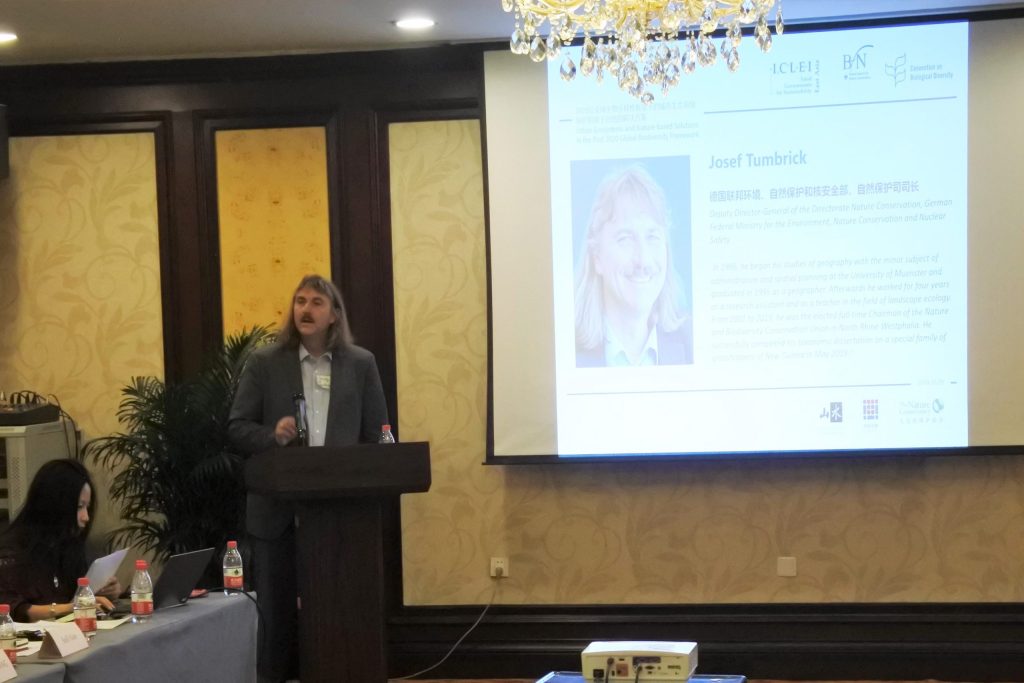
Josef Tumbrinck, Deputy Director, Department of Nature Conservation, BMU |
|
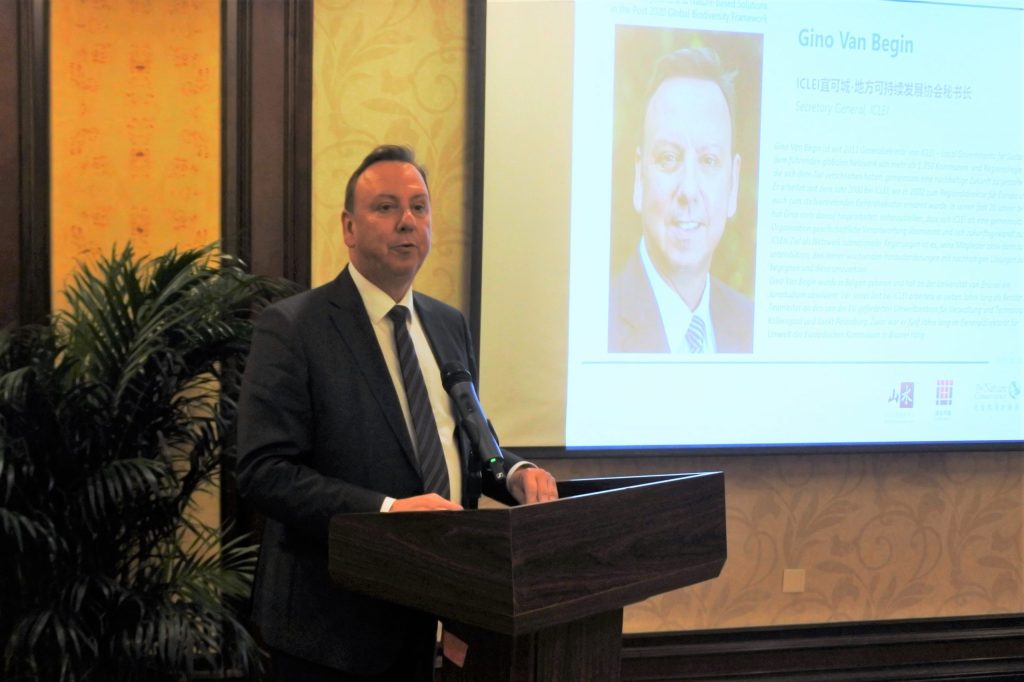
Gino Van Begin, Secretary General, ICLEI World Secretariat |
Zhengwen Gao, Deputy Director General, Department of Ecology and Environment, Yunnan Province
|
Biodiversity loss is not only a crisis to the natural environment, but it also has economic and social consequences, emphasized Gino Van Begin, Secretary General of ICLEI – Local Governments for Sustainability. To support subnational governments moving towards a sustainable future, ICLEI has been organizing successive local government biodiversity summits at the Conference of Parties of the CBD. With the support of the Secretariat of the CBD, ICLEI is looking forward to partnering with the Chinese National Government and the Yunnan Provincial Government to convene another local government biodiversity summit at the CBD COP-15 in Kunming next year.
On this occasion, Zhengwen Gao, Deputy General of the Department of Ecology and Environment, Yunnan Province of China, also shared the progress of preparation for the CBD COP-15, and the experiences in biodiversity conservation the Province has accumulated over the years.
Through a series of presentations and four parallel roundtable discussions, the participants had intensive engagement and exchanges over four specific themes, namely:
- Good practices on mainstreaming biodiversity and ecosystems in urban spatial planning;
- Voluntary political commitments and financial incentives for integrating biodiversity in urban development;
- Fostering multilevel governance to enhance urban biodiversity;
- Promoting urban biodiversity through science-based policy making.
The participants agreed that, in order to leverage the power of people as engines of change, citizens should be capacitated via education and awareness-raising activities, or provided with access to shared multifunctional urban green spaces, to recast the relationship between humans and the natural environment. In addition, the use of scientific data and evidence is also an effective way to communicate with the public about how biodiversity underpins human development and economic activities.
On the other hand, it was also suggested that making a distinct shift from conventional urban planning practices to planning and managing spaces, and building on interconnectedness, rather than focusing on segregation, is also an effective practice in mainstreaming biodiversity and ecosystems in urban spatial planning.
The importance of multilevel governance for enhancing biodiversity in urban development was also highlighted by representatives from various sectors, as the integrating of biodiversity and ecosystems in urban development depends on coherent policies across sectors and governments at different levels. While governments could improve vertical cooperation in forms of voluntary political commitments, financial incentives, and legal compliances, they could also seek to engage external brokers such as competent NGOs, to facilitate and enable effective multilevel governance and actions for conserving and enhancing urban biodiversity and ecosystems.
Finally, considering the urban-rural differences regarding the natural environment and ecosystems, it is important to come up with a more comprehensive financial mechanism for mainstreaming biodiversity and ecosystems at the local level. Furthermore, relevant tools should be applied to evaluate progress in urban biodiversity conservation and support subnational governments in contributing to the global convention with science-based policymaking.
The outcomes of the consultation will feed into the science and policy discussion towards the preparations for COP-15, as well as the formulation and implementation of the post-2020 global framework.


